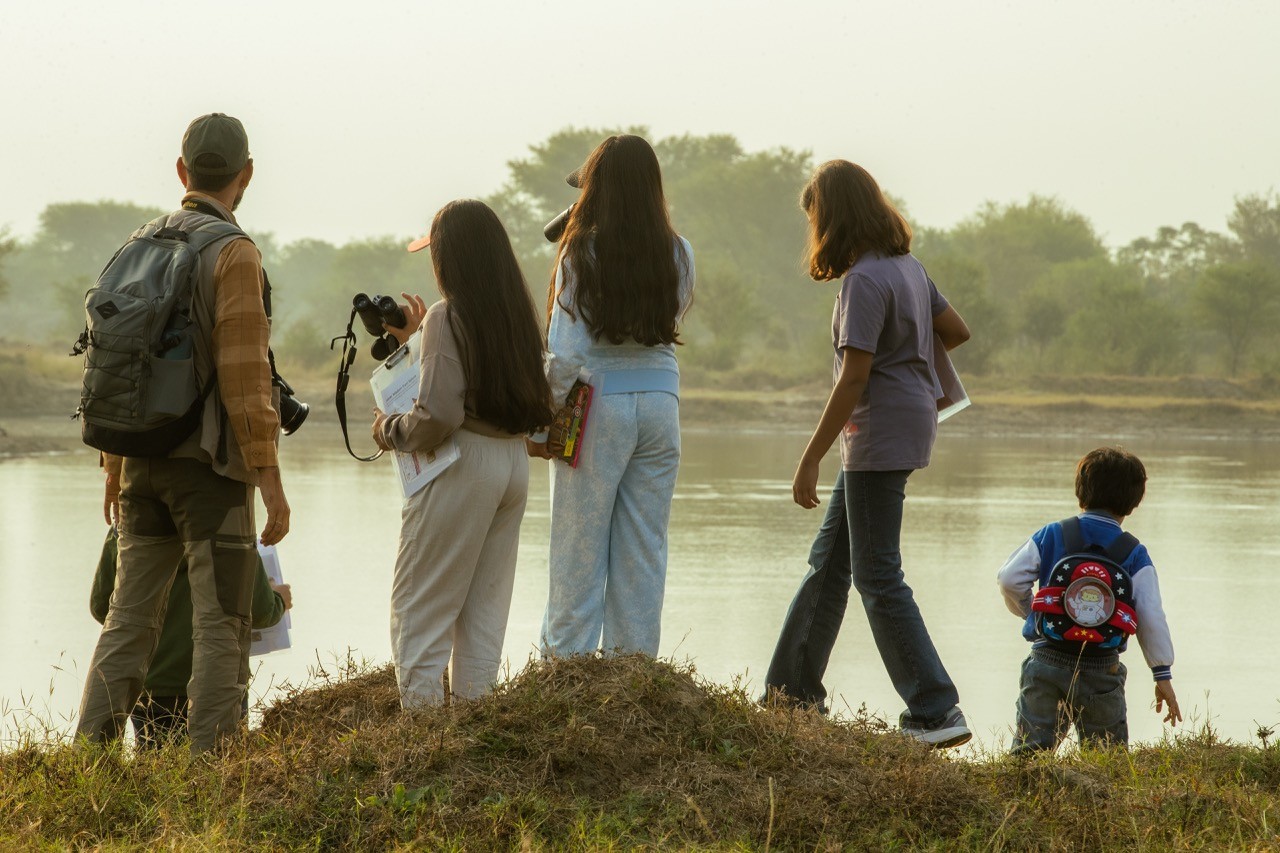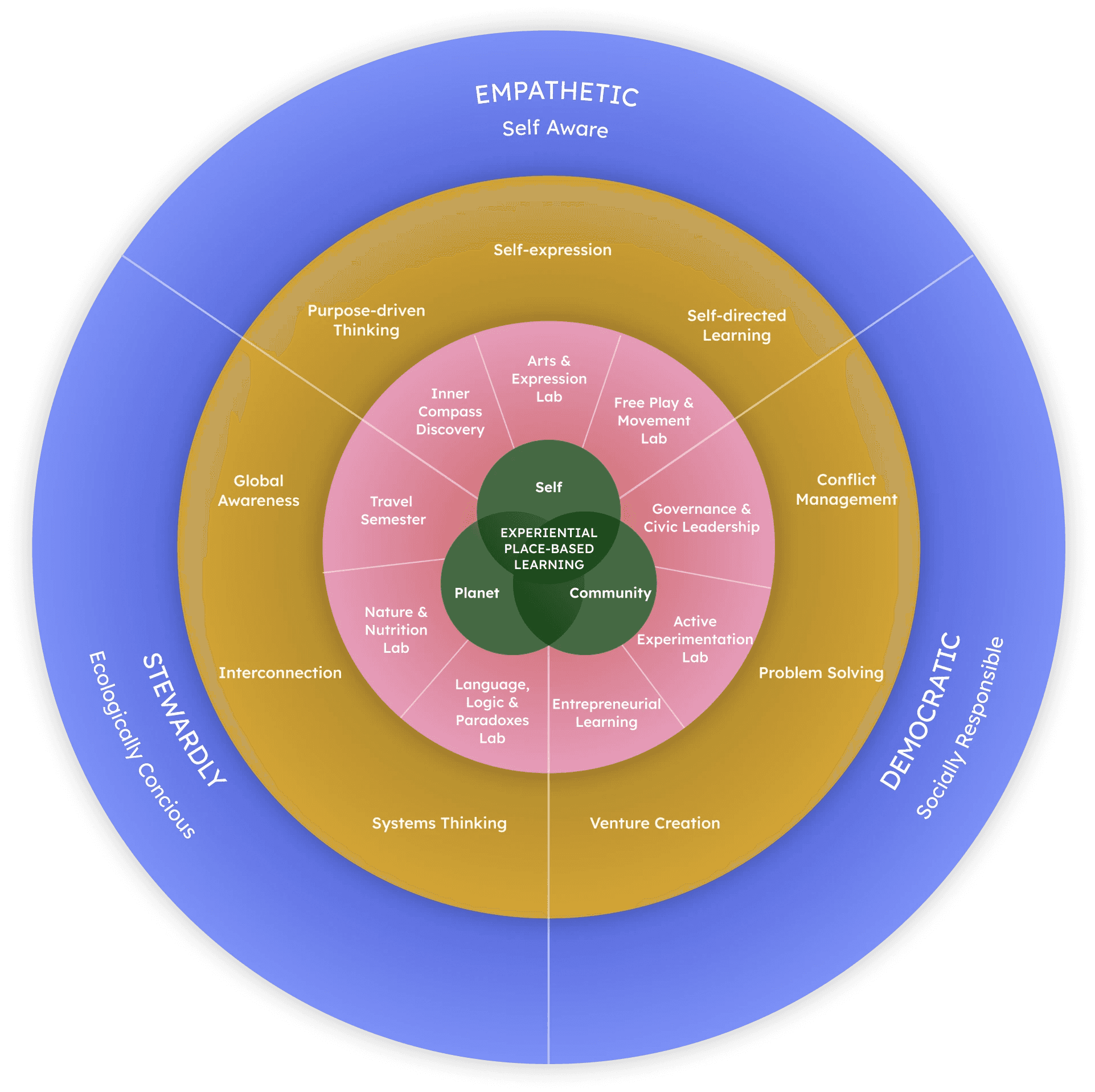CURRICULUM
Dhun School's learning format integrates a selection of proven educational methods, including the Cambridge International Curriculum, into one cohesive, holistic learning experience.
Learners are grouped by competency, not age, allowing them to progress at their own pace. Interdisciplinary learning enables them to move fluidly across subjects, deepening their unique interests. Lessons are rooted in real-world issues, keeping students engaged with both local and global contexts. Experiential learning transforms the natural world and the community into an extension of the classroom through hands-on projects.
Our approach is anchored in three interconnected pillars: Self, Community, and Planet, through which we cultivate the values and outcomes of being democratic, empathetic, and stewardly. These guiding principles shape not only how we learn but also who we become.
Above all, Dhun School fosters an inclusive, equitable learning community that welcomes students from all backgrounds.
KEY LEARNING PROCESSES
LEARNING LABS
STAGES OF LEARNING
Dhun School's curriculum is divided into four distinct phases of learning and growth:
01
SENSE STAGE
K–G2 / Getting Curious
Learners build their first connections—with each other and their environment—through curiosity, play, and nature. Early literacy and numeracy develop naturally alongside self-awareness, responsibility, and emotional intelligence.
03
EMERGE STAGE
G6–8 / Taking Responsibility
With growing independence, learners begin shaping their role in the world. They apply their knowledge through real-world experiences, exploring environmental literacy, sustainable practices, and professional internships that extend learning beyond the classroom.












